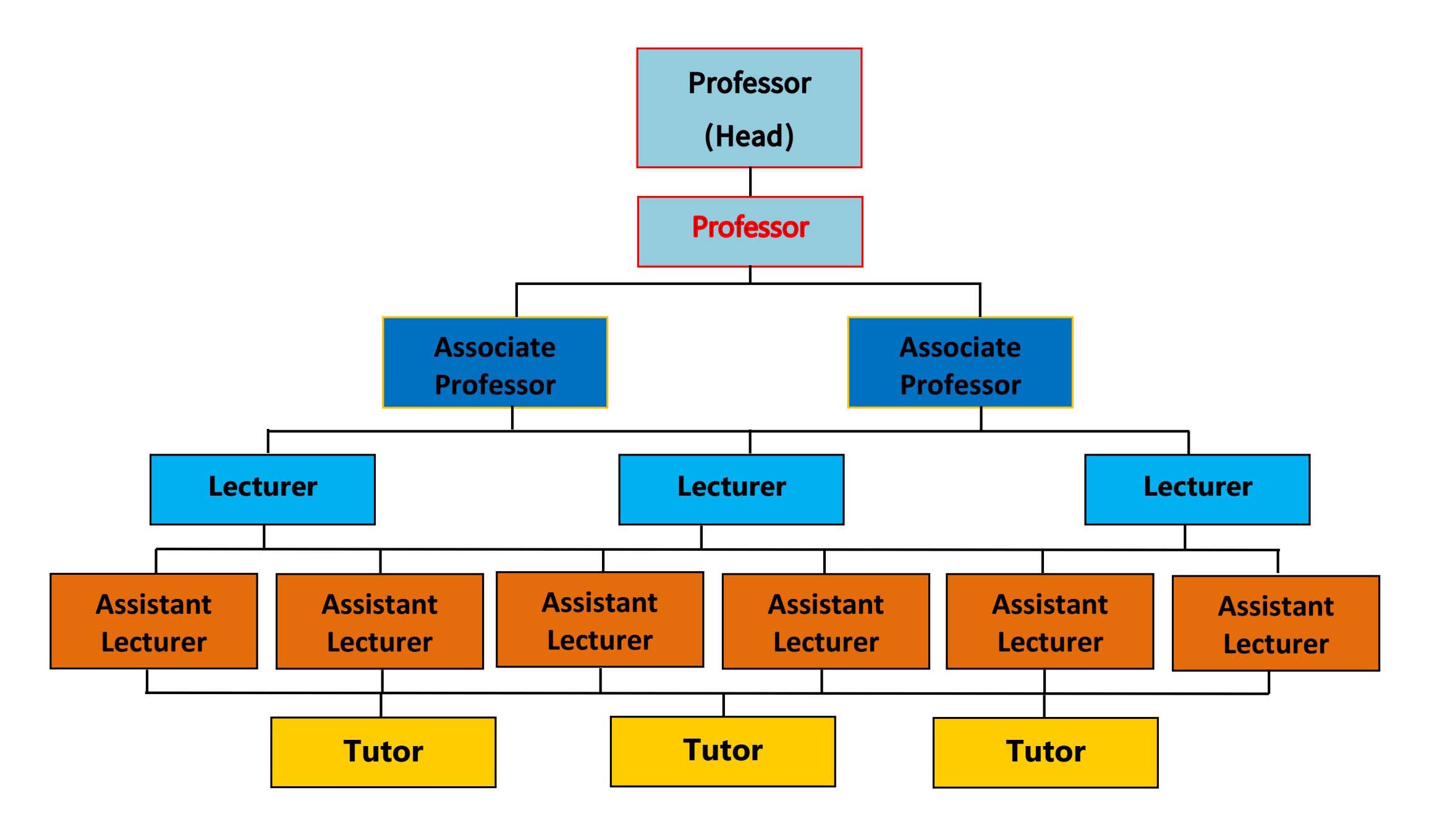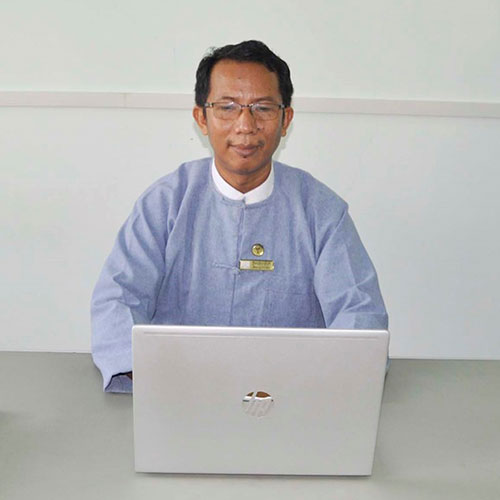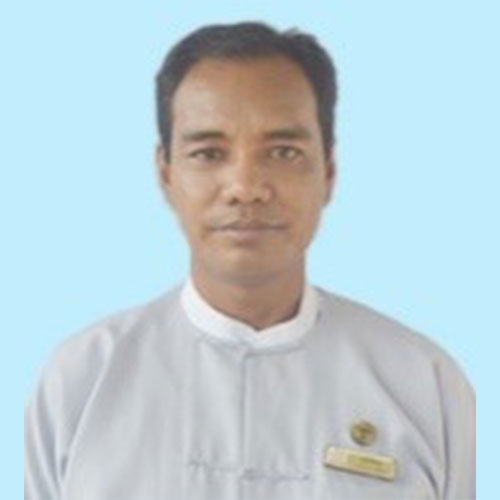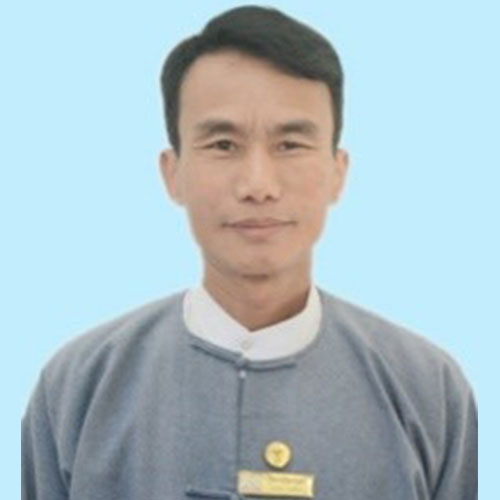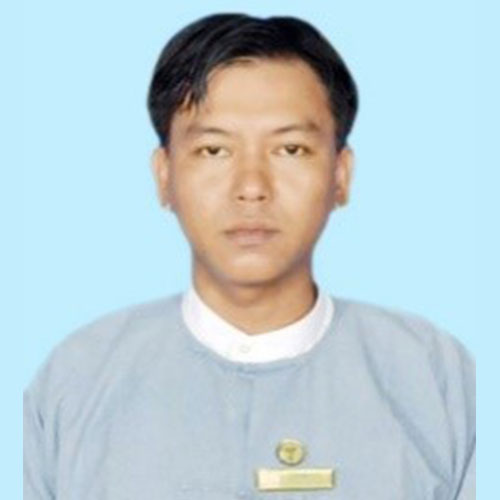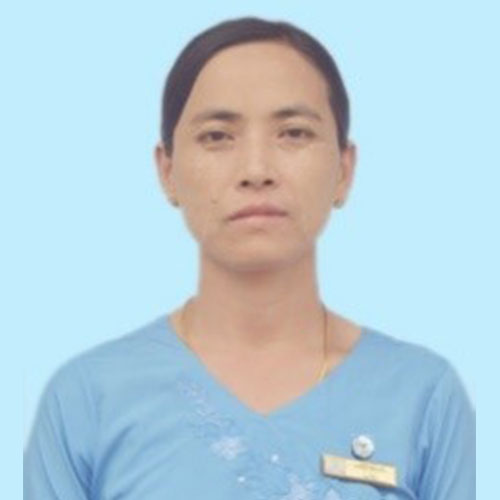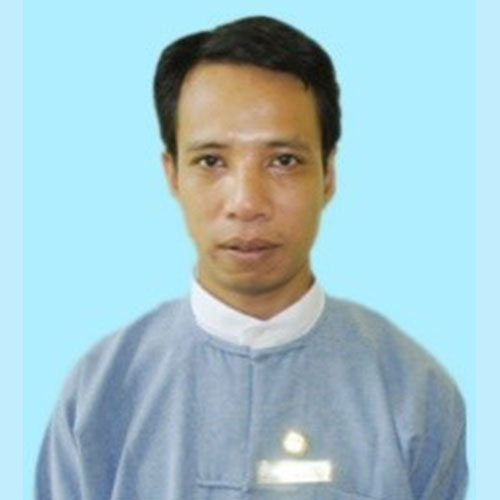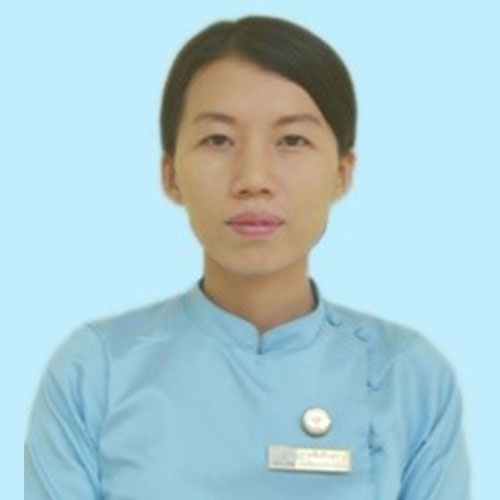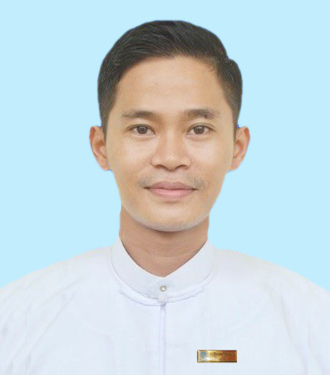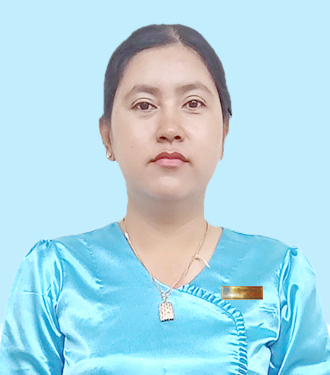The Department of Information and Communication Technology was established in the Civil Service Academy (Lower Myanmar) under the Union Civil Service Board in 2016. The department trains the trainees who attend Advanced Diploma in Civil Service Management Course, Post Graduate Diploma in Civil Service Management Course, Basic Course for Civil Service Officer, Basic Course for Junior Civil Service Officer, Enhance Course for Office Supervisor and Basic Course for Clerical Staff the subjects of Information and Communication Technology. During the COVID-19 Pandemic, We also train the Basic Course for Junior Civil Service Officer the Information and Communication Technology subjects by conducting Online Training using zoom application under an arrangement of Civil Service Academy (Lower Myanmar).
The Department of Information and Communication Technology at the Civil Service Academy (Lower Myanmar) provides the programs in Information and Communication Technology whose post graduate diploma and advanced diploma are globally recognized, well-prepared, organization-ready professionals. We will build a strong training environment relevant to the needs of the real world. Through training, the Department of Information and Communication Technology will give our trainees a competitive advantage in the ever-changing and challenging digital technologies.
1.to train the trainees to effectively apply their knowledge to solve real-world technology problems
2.to train the trainees to understand their professional and ethical responsibilities
3.to support society by participating in and encouraging technology transfer.
1.to know and understand the technical knowledge
2.to realize the information and communication technology applications for implementing in their workplace
3.to be able to solve the problem related to information and communication technology with the crucial technical points
4.to support the implementation of e-Government
to innovate the new ideas concerning the information and communication technology
Faculty Member
U Kyaw Kyaw Min
Professor(Head)
U Soe Yan Aung
Lecturer
Daw Khine Khine Win
Lecturer
U Zaw Zaw Aung
Lecturer
Daw Hkawng Naw
Lecturer
Major subjects and objectives taught by the Department of Information and Communication Technology
| No. | Subject | The Purpose |
| 1 | ICT Strategy and Management
(ICT-7201) |
– Data, Information and Knowledge. To introduce computer-based information systems.
– To be able to establish and manage grand strategies in collaboration within organizations |
| 2 | ICT Trends and e-Government
(ICT-7202) |
– To discuss the implementation of e-government system.
– To describe and discuss current technologies and their effects. |
| 3 | Information Security & Privacy
(ICT-7203) |
– Understanding concepts related to information security and privacy.
– To know the status of incoming threats to information security and the factors to be protected. |
| No. | Subject | The Purpose |
| 1 | ICT Strategy
(ICT-7101) |
– To be able to establish and implement grand strategies in collaboration within organizations. |
| 2 | ICT Management
(ICT-7102) |
– To introduce system development related to project management processes. |
| 3 | Technology
(ICT-7103) |
– To introduce computer components, system components, Hardware, Software, and Multimedia Technology. |
| No. | Subject | The Purpose |
| 1 | e-Government | – To discuss the implementation of e-government system. |
| 2 | Software | – To learn about software that can act as a medium for the information system to operate better.
– The importance of the operating system; To know how to connect to hardware devices and operate. |
| 3 | System Components | – To identify and identity the behavior of information systems.
– A simplified structure developed to highlight the basic concepts of the components of an information system and to understand how it relates to some practical nature. |
| 4 | Security | – To protect customers and their personal information from unauthorized disclosure.
– To ensure that information is not altered (or destroyed). – Provide hardware and software for continuous operation to ensure uninterrupted service to stakeholders. |
| 5 | Network | – Devices that can be connected to the network, such as computers, tablet phone, print. Scanners and copiers so that users can share and use them efficiently. |
| 6 | Multimedia | – To know the types of multimedia.
– Technologies that support multimedia systems-especially audio; To know and understand techniques related to images. – To be able to consider the application systems related to the future multimedia. |
| 7 | Computer Practical Application | – To provide business license support by delivering office work applications. |
| No. | Subject | The Purpose |
| 1 | e-Government | – To discuss the implementation of e-government system. |
| 2 | Software | – To learn about software that can act as a medium for the information system to operate better.
– The importance of the operating system; To know how to connect to hardware devices and operate. |
| 3 | System Components | – To identify and identity the behavior of information systems.
– A simplified structure developed to highlight the basic concepts of the components of an information system and to understand how it relates to some practical nature. |
| 4 | Security | – To introduce the basic concepts of Information Security. |
| 5 | Network | – Devices that can be connected to the network, such as computers, tablet phone, print. Scanners and copiers so that users can share and use them efficiently. |
| 6 | Multimedia | – To know the types of multimedia.
– Technologies that support multimedia systems-especially audio; To know and understand techniques related to images. – To be able to consider the application systems related to the future multimedia. |
| 7 | Computer Practical Application | – To provide business license support by delivering office work applications. |
| No. | Subject | The Purpose |
| 1 | e-Government | – To discuss the implementation of e-government system. |
| 2 | Software | – To learn about software that can act as a medium for the information system to operate better.
– The importance of the operating system; To know how to connect to hardware devices and operate. |
| 3 | System Components | – To identify and identity the behavior of information systems.
– A simplified structure developed to highlight the basic concepts of the components of an information system and to understand how it relates to some practical nature. |
| 4 | Security | – To introduce the basic concepts of Information Security. |
| 5 | Network | – Devices that can be connected to the network, such as computers, tablet phone, print. Scanners and copiers so that users can share and use them efficiently. |
| 6 | Multimedia | – To know the types of multimedia.
– Technologies that support multimedia systems-especially audio; To know and understand techniques related to images. – To be able to consider the application systems related to the future multimedia. |
| 7 | Computer Practical Application | – To provide business license support by delivering office work applications. |
| No. | Subject | The Purpose |
| 1 | e-Government | – To discuss the implementation of e-government system. |
| 2 | Software | – To learn about software that can act as a medium for the information system to operate better.
– The importance of the operating system; To know how to connect to hardware devices and operate. |
| 3 | System Components | – To identify and identity the behavior of information systems.
– A simplified structure developed to highlight the basic concepts of the components of an information system and to understand how it relates to some practical nature. |
| 4 | Security | – To introduce the basic concepts of Information Security. |
| 5 | Network | – Devices that can be connected to the network, such as computers, tablet phone, print. Scanners and copiers so that users can share and use them efficiently. |
| 6 | Multimedia | – Technologies that support multimedia systems-especially audio; To know and understand techniques related to images. |
| 7 | Computer Practical Application | – To provide business license support by delivering office work applications. |
